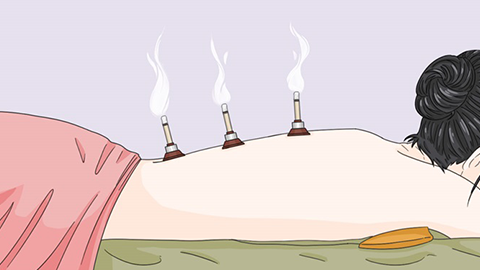Why does asthma worsen after moxibustion?
Generally, worsening asthma symptoms after moxibustion may be caused by excessive moxibustion duration, catching a chill, airway hyperresponsiveness, airway irritation, or immune reactions. If discomfort occurs, prompt medical attention is recommended. The specific analysis is as follows:

1. Excessive Moxibustion Duration
Excessively prolonged moxibustion may accelerate the patient's blood circulation and qi flow, potentially triggering or worsening asthma symptoms. During moxibustion therapy, the duration should be properly controlled to avoid excessive sessions, which may accelerate blood and qi circulation and induce asthma.
2. Catching a Chill
During moxibustion, the pores open, and failure to maintain warmth may allow cold pathogens to invade, thereby triggering or worsening asthma. After moxibustion, perspiration should be promptly wiped off, and保暖 measures should be taken. Clothing should be adjusted according to climate changes to avoid cold exposure.
3. Airway Hyperresponsiveness
Airway hyperresponsiveness may be triggered by smoke and thermal stimulation of the respiratory tract during moxibustion. This can cause airway narrowing and incomplete patency, thus worsening asthma symptoms. It may be accompanied by coughing, chest tightness, and shortness of breath. Treatment may include medications such as salbutamol inhalers, ambroxol hydrochloride oral solution, or budesonide suspension for inhalation, as advised by a physician.
4. Airway Irritation
Airway irritation may be related to smoke and temperature changes during the moxibustion process. Airway irritation may cause airway spasms, leading to airway narrowing and worsening asthma symptoms. Accompanying symptoms may include wheezing and rapid breathing. Treatment should follow medical advice using medications such as salbutamol sulfate tablets, terbutaline sulfate granules, or dopamine hydrochloride injection.
5. Immune Reaction
An immune reaction may be triggered by moxibustion. When the body is exposed to certain components in moxibustion, it may trigger an abnormal immune response, intensifying inflammatory reactions. Inflammation can lead to airway narrowing and increased mucus secretion, thereby worsening asthma symptoms. Symptoms such as coughing and expectoration may also occur. Treatment may include medications such as compound cyclophosphamide tablets, dexamethasone sodium phosphate injection, or hydrocortisone injection, as directed by a physician.
To prevent this condition, patients are advised to control moxibustion duration in daily life, avoiding excessively long sessions to prevent accelerated blood and qi circulation from inducing asthma. Additionally, regular pulmonary function tests and allergen testing should be conducted to promptly identify and address related issues.










